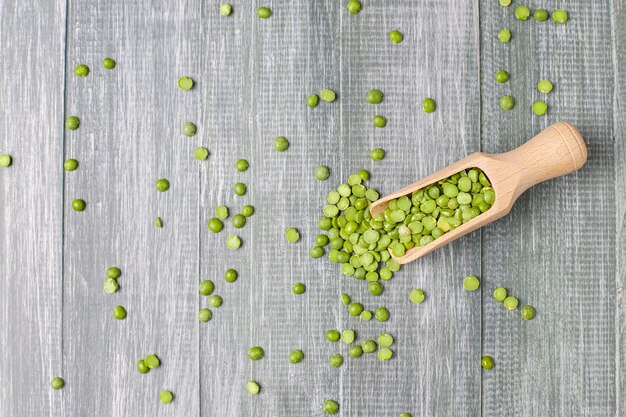
Ever wondered why pea protein powder is gaining traction in the world of plant-based supplements? It’s all about the benefits it brings to the table, from muscle repair to weight control. We’ll also compare it to whey protein, focusing on their amino acid content. But it’s not all roses – we’ll also touch on potential side effects and who should be careful. Lastly, we’ll talk about the importance of quality and purity in pea protein supplements, and what to look for when choosing the best one.
Pea protein is becoming a hot favorite as a plant-based protein alternative. It’s packed with health benefits that cater to a wide range of dietary needs and preferences.
One of the key features of pea protein is its rich amino acid profile. It’s loaded with nine essential amino acids that our bodies can’t make on their own, making it a great choice for muscle growth and recovery. Among these, branched-chain amino acids (BCAAs) like leucine, isoleucine, and valine are key players in muscle strength and endurance. Plus, pea protein is easily digestible, ensuring these nutrients are readily available for your body to use.
For those with allergies or sensitivities to dairy, soy, or gluten, pea protein is a safe bet. It’s hypoallergenic, making it a great choice for those on restrictive diets looking for a low-FODMAP, lactose-free protein powder.
Pea protein also promotes heart health. Regular consumption may help lower high blood pressure levels, reducing the risk of heart disease over time. It could also help manage cholesterol levels by promoting the removal of LDL (bad) cholesterol from the body.
If you’re looking to lose weight or maintain a healthy weight, pea protein can be a big help. Its high-fiber content promotes fullness, helping you feel satisfied longer after meals. Plus, swapping animal-based proteins for nutrient-dense, plant-based ones often results in fewer calories consumed overall. This not only supports weight management goals but also encourages healthier eating habits.
When it comes to comparing pea protein to whey, both are popular among fitness enthusiasts, but they come from very different sources. Whey protein, derived from animals, is a complete source of nutrition, encompassing all nine essential amino acids. It’s particularly high in BCAAs, which are crucial for muscle building and recovery.
Pea protein, while slightly lower in methionine than whey, is rich in arginine and lysine. Its digestibility might be slightly less than whey due to its plant-based nature, but many find it easier on the stomach and less likely to cause digestive issues.
Beyond just providing essential amino acids, both types of proteins offer additional nutritional benefits. Whey is known for containing immunoglobulins that boost immune function, while pea protein brings fiber and iron to the table — nutrients often lacking in standard diets.
In terms of sustainability, pea protein is more environmentally friendly compared to animal-derived products like whey powder. This aligns with growing environmental concerns around livestock farming.
Despite its nutritional value, pea protein does have potential downsides. Some people might experience allergic reactions, ranging from mild skin rashes to more severe issues like difficulty breathing. Digestive discomfort, such as bloating or gas due to the fiber content in peas, is also a common concern. However, this usually diminishes over time as your body adjusts.
Peas contain substances called phytates which can interfere with the absorption of certain minerals such as iron and zinc. While generally not a concern for most people following balanced diets, choosing products that are processed to reduce phytate levels or combining them with vitamin C-rich foods could optimize nutrient absorption.
When choosing a pea protein powder, look for clean products that have been third-party tested for purity. This means an independent organization has reviewed the product’s quality. Also, look for certified organic and non-GMO verified protein powder. This ensures the peas are grown without synthetic fertilizers or pesticides and weren’t genetically modified.
If you have sensitive digestion or conditions like IBS, finding a pea protein powder that’s low in FODMAPs can be a game-changer. Monash University certifies products as low-FODMAP, a seal of approval worth seeking out.
Lastly, avoid artificial sweeteners, sugar alcohols, and synthetic ingredients. These substances might lead to gastrointestinal distress, swelling, and unease. Even if you don’t have sensitive digestion, it’s wise to choose powders with natural flavorings.
In conclusion, pea protein is more than just a trend; it’s a nutritional powerhouse that deserves a place in your diet. When compared to whey, pea protein holds its own with a strong amino acid profile. Finding the right supplement means looking for purity, organic certification, and no nasty extras. Make sure what you choose aligns with these standards.






